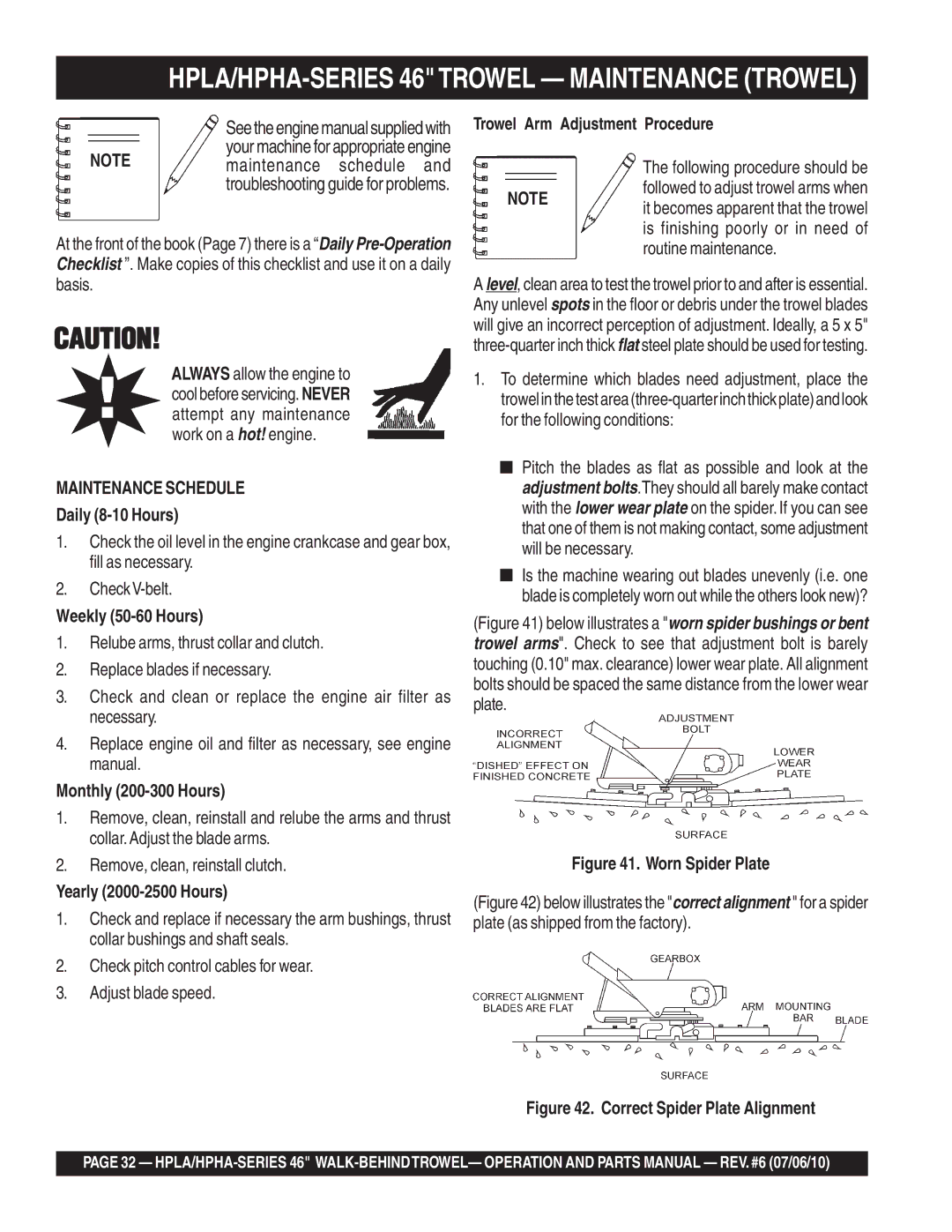
HPLA/HPHA-SERIES 46"TROWEL — MAINTENANCE (TROWEL)
See the engine manual supplied with your machine for appropriate engine
NOTE maintenance schedule and troubleshooting guide for problems.
At the front of the book (Page 7) there is a “Daily
CAUTION!
ALWAYS allow the engine to cool before servicing. NEVER attempt any maintenance work on a hot! engine.
MAINTENANCE SCHEDULE
Daily
1.Check the oil level in the engine crankcase and gear box, fill as necessary.
2.
Weekly (50-60 Hours)
1.Relube arms, thrust collar and clutch.
2.Replace blades if necessary.
3.Check and clean or replace the engine air filter as necessary.
4.Replace engine oil and filter as necessary, see engine manual.
Monthly (200-300 Hours)
1.Remove, clean, reinstall and relube the arms and thrust collar.Adjust the blade arms.
2.Remove, clean, reinstall clutch.
Yearly (2000-2500 Hours)
1.Check and replace if necessary the arm bushings, thrust collar bushings and shaft seals.
2.Check pitch control cables for wear.
3.Adjust blade speed.
Trowel Arm Adjustment Procedure
The following procedure should be followed to adjust trowel arms when
NOTE it becomes apparent that the trowel is finishing poorly or in need of routine maintenance.
A level, clean area to test the trowel prior to and after is essential. Any unlevel spots in the floor or debris under the trowel blades will give an incorrect perception of adjustment. Ideally, a 5 x 5"
1.To determine which blades need adjustment, place the
■Pitch the blades as flat as possible and look at the adjustment bolts.They should all barely make contact with the lower wear plate on the spider. If you can see that one of them is not making contact, some adjustment will be necessary.
■Is the machine wearing out blades unevenly (i.e. one blade is completely worn out while the others look new)?
(Figure 41) below illustrates a "worn spider bushings or bent trowel arms". Check to see that adjustment bolt is barely touching (0.10" max. clearance) lower wear plate. All alignment bolts should be spaced the same distance from the lower wear plate.
Figure 41. Worn Spider Plate
(Figure 42) below illustrates the "correct alignment " for a spider plate (as shipped from the factory).
Figure 42. Correct Spider Plate Alignment
PAGE 32 —
